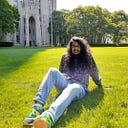Nehru Sahib and Jinnah Sahib
“No, I have been generously fed at Sarat Bose’s by his family”, said Jawaharlal Nehru. “That was in Calcutta. You are now in Bombay”, replied Muhammad Ali Jinnah. Nehru was in the city to attend the 48th session of the Indian National Congress. Jinnah had long ceased to be a member of the Congress but Nehru had called on him at Gandhi’s insistence. This is how he came to find himself at what was essentially the headquarters of the Muslim League in Bombay.
The Quaid’s meals were frugal. Like on most afternoons, today’s lunch included a serving of chicken soup and some fruit. Nehru was content smoking his 555 and he seemed to find the otherwise uneventful act of flicking ash from his cigarette on to the overly polished receptacle placed on the dinner table mildly satisfying. “A gift from Nawab Yar Jung”, said Jinnah, having noted the telling expression on Nehru’s face. “Impressive”, Nehru answered.
Unlike Jinnah, Nehru was a natural conversationalist. He could talk about Gibbon’s Decline and Fall of the Roman Empire one moment and the lush greenery of the Irish countryside the next. He’d tell you about the seriousness with which post-Enlightenment Germans took Sanskrit and go on and on on the subject of Kipling’s Kim. Jinnah, though, hated small talk. So, Nehru had to stick to business. But, formally, at least, there was no business to see to.
Just then Fatima Jinnah walked in. A saving grace. Contrasted with her older brother, Fatima was a bon vivant and full of life. She was the sibling Jinnah was closest to and the only one who lived with him. “How was Calcutta, Mr Nehru?”, she asked. “Always satisfying. I found time to spend an entire morning at the Indian Museum on this occasion”, Nehru cheerfully replied. “How delightful. I sometimes miss Calcutta. It’s been years since I returned there”, said Fatima. That look of nostalgia she was wearing on her face was self-evident. Fatima Jinnah had been a student in a dental college at Calcutta University and, from what Abdul tells me, exemplary in her studies.
“I’m afraid I have no mangoes to offer you. We are too late in the year for that. It’s a pity to be guested in Bombay and not have mangoes plated up for you”, Fatima chuckled. “Ha, yes, a real shame”, Nehru acknowledged. The Pathan waiting their table seemed to be in agreement and broke into a smile. Abdul spoke no English but this much at least he could comprehend. He was impeccably dressed like all of the Jinnah household’s domestic staff. And burly, too. Just like everyone else employed by the Jinnah siblings.
The next moment Jinnah wiped his mouth and rose up. Nehru and Fatima stood up after him. “Mr Nehru, I have an appointment at the Taj Mahal Hotel in an hour and so must take your leave in some minutes”, Jinnah stated. “Yes, Mr Jinnah, I should probably depart as well. Thank you for hosting me. Thank you, Fatima, for the conversation”, Nehru responded. Jinnah’s sister smiled. “Chaudhry is ready with the Packard”, she said to her brother. The two men shook hands and parted. Jinnah lit a cigarette as soon as Nehru left his sight.
This, perhaps, was the real pity, Abdul, Jinnah’s favourite orderly, confessed to me years later in 1950. I was distressed at having to start a new life at my age in the Dooars in West Bengal after being brought here by my sons from Manikganj, Dhaka and resettled against my will. I was a Hindu, you see. It didn’t matter to me but it mattered enough to them. Abdul was preparing to leave for Pakistan. He was three years late, he said, and feeling much impatient. Our families had known each other for three generations and he was determined to see me before he left for a country which he had still not seen but I had lived in for three years. We were meeting at the Coffee House on College Street in Calcutta where Abdul’s late father was among the first batch of attendants. His old age had been disregarded in favour of his rich experience at waiting tables for sahibs and memsahibs.
“You see, Charu, you, a Hindu, and I, a Muslim, were made to believe that your saviour was Nehru and mine Jinnah”, Abdul told me. “But Nehru and Jinnah hardly talked to each other. They weren’t friends. It was always an awkward relationship”, he added. I nodded even though I did not completely agree with him for I had always believed that Nehru’s secular universalism was boundless when compared with Jinnah’s circumscribed Islamic universalism. But partition had profoundly troubled me and now was not the time to argue and bandy words with each other. It was 1950, after all. “Charu”, he continued, “I have come to realise that your saviour is bhagban and mine allah. The two are the same.” “No man should have pretensions of replacing the almighty and speaking for him”, Abdul stared at me and confessed. I was a little unsettled to hear these words from him, an old Leaguer and longtime Jinnah loyalist. “Don’t misunderstand me, dada. I still love the Quaid and may allah grant him jannat. I admire the Pandit, too”, said Abdul, before adding “but they did not talk to each other.”
To Saadat Hasan Manto, in tribute
